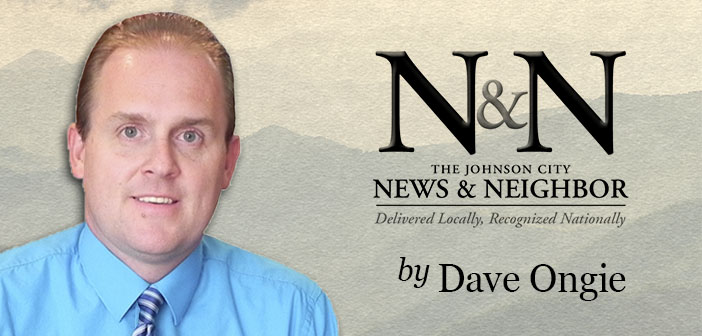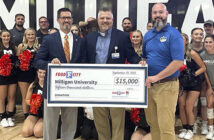Mercifully, 2020 is nearing its midway point.
For those of you just tuning in, here’s a quick recap: The chickens are free-range, and the people are not.
If ever there was a year in need of a halftime, this is it. Now seems like an excellent time for humanity to file into a locker room, grab an ice-cold cup of Gatorade and draw up a fresh game plan.
We’re roughly three months into a controlled lockdown that has eased ever-so-slightly in recent weeks. The curve has been flattened, but the experts say we’re not yet out of the woods.
The feeling of limbo is constant. School is tentatively scheduled to start in just over a month, but nothing in life is etched in stone these days. In fact, anything that is written about the future seems to be accompanied by an asterisk.
This is obviously due to the fact that nobody knows if there will be a second wave of COVID-19. So we’re left to wait and wonder while most everything that draws us together during typical summers gets wiped off the pages of our collective calendar. Fun Fest. Jonesborough Days. The Pepsi Independence Day Fireworks. The Appalachian Fair. Meet the Mountains. Appalachian League Baseball. The curve has been flattened, and so have our spirits. But there’s always a silver lining in life if you look hard enough, and I think I’ve identified one in the midst of this unhinged year. Oftentimes in life, you don’t appreciate what you have until its gone. There are so many things we have taken for granted over the years, things that bring us all together.
In recent years, I’ve warily looked on at a culture that increasingly values disruption over construction. Much attention is lavished upon people that figure out a way to disrupt an industry or a sector of our economy. I read stories about people who have managed to disrupt an entire industry, most often through the use of technology, and while most folks marvel at the efficiencies these innovators have created, I’m left wondering about the human cost.
What happens to all the workers displaced by this innovation? What is the ripple effect, and what are the unintended consequences of this action? The shareholders may be happy, but what will this do to our quality of life?
Anybody can break something. All it takes is a hammer. There was a time in this country when we lavished praise upon the builders. We’ve built a lot of great things in this country over the years, things that have made us the envy of the world.
But nothing we’ve built has had a greater impact on the world than the tight-knit communities that dot the countryside of the United States of America. Strong communities are a blessing, and we’ve been very fortunate to be part of a great one here in Johnson City and Washington County.
I’m hoping as we enter the second half of 2020, we come running out of the tunnel and back onto the field closer together than ever. I’m hoping as we endure a summer without so many of our shared traditions, we will learn to cherish them and work hard to restore them when the time comes.
There are some things in life that do need to change, which requires disruptions of our everyday life. But the question that needs to be asked of all disruptors is this: What are you building to replace what you are breaking apart? The world needs hammers, but at this moment in human history, it also needs a lot of glue – ties that bind us all together into the strong communities that form a strong, united country.
So whatever we draw up on that chalkboard during this halftime break, let’s do it with the goal of shoring up the ties that bind and eliminating the things that keep us apart.




